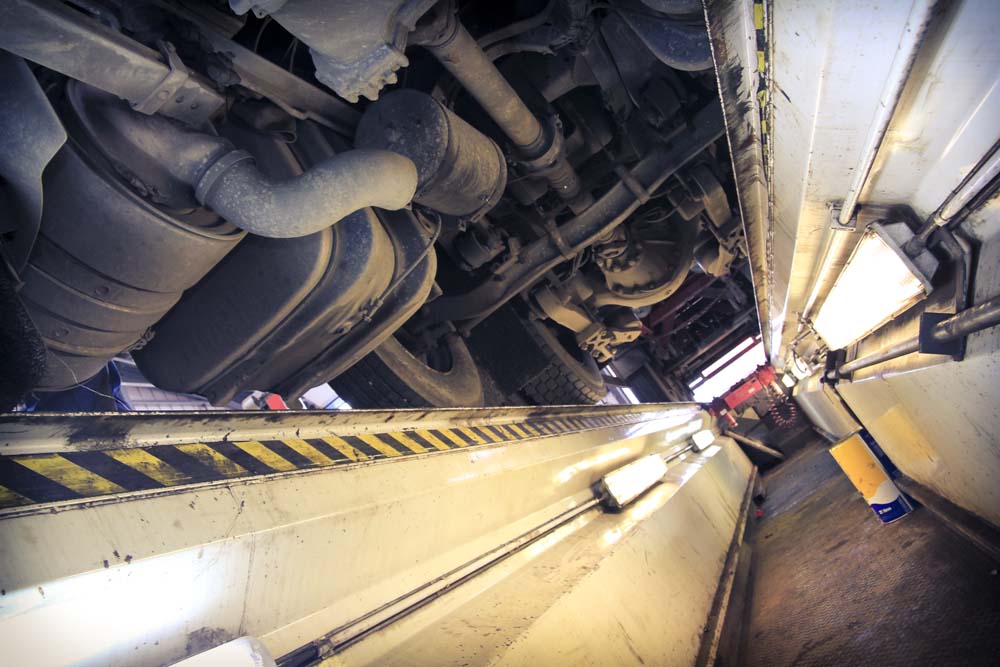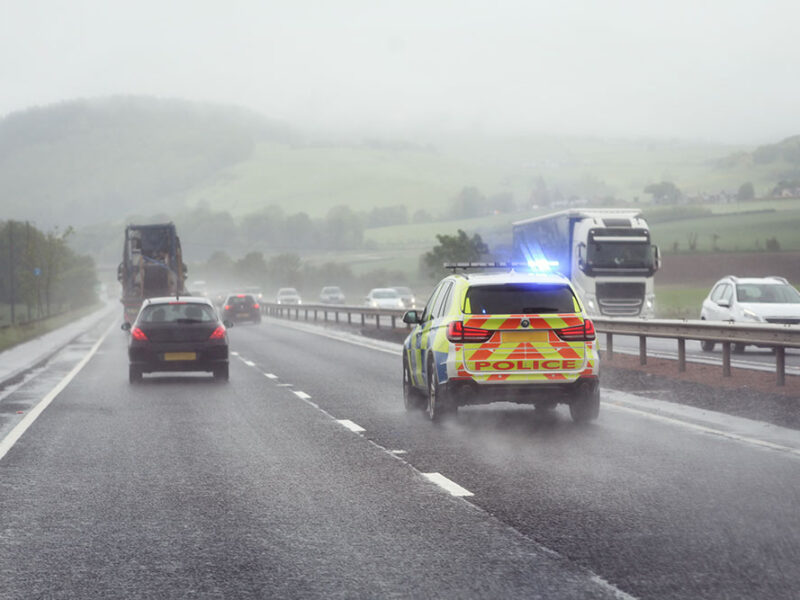Here is the latest round up of updates from the Traffic Commissioners' Office:
The latest update to the Senior Traffic Commissioner's COVIS-19 guidance for goods and passenger vehicle operators has been published, with the updated version of the document available here.
This new update focusses on two primary areas - first, a change in relation to the position that the DVSA vehicle examiners are adopting when it comes to the issue of roadworthiness prohibitions - and second, the latest in relation to the position the OTC itself is adopting on Public Inquiries.
Roadworthiness Prohibitions
Previous versions of the Guidance have included provision in limited COVID-enforced circumstances for operators to extend the stated regular safety inspection interval, whilst making it clear that road safety should never be compromised. The rationale for this temporary relaxation is recognition that access to maintenance facilities is highly likely to be restricted for as long as the government's social distancing and 'lockdown' measures remain in place.
For similar reasons, the DVSA has confirmed changes to the approach to be taken in relation to the issue of roadworthiness prohibition notices in certain circumstances.
Firstly, the DVSA has confirmed that it will not take any enforcement action for vehicles found operating with 'in-service reported' non-safety critical defects in circumstances where necessary parts and/or access to workshops are unavailable (operators are encouraged to consult the HGV and PSV inspection manuals for clarification on what constitutes a 'minor' or 'major' non-safety critical defect). However, operators should note that:
- No vehicle or trailer may be used with a serious or dangerous defect;
- Operators need to keep records on vehicle maintenance files explaining and evidencing why any repairs have needed to be deferred; and
- Any judgement regarding a vehicle's suitability to be used in service must be made by a suitably qualified technician.
Secondly, the DVSA has confirmed a suspension on the issue of delayed roadworthiness prohibitions: instead, any defects will be reported on an inspection notice, with a requirement for the operator to retain documentary evidence that any reported defects have been rectified in a timely manner.
Finally, the DVSA has also indicated that in certain circumstances, where a prohibition has been issued, it may be possible for the prohibition to be removed based upon the electronic supply of evidence that defects have been rectified, together with a new regular safety inspection report being provided (i.e. without the usual requirement for the vehicle to be subject to a DVSA inspection to remove the prohibition).
Public Inquiries
The previous version of the Guidance confirmed that if a Public Inquiry (or Driver Conduct Hearing) was to be adjourned, the operator or driver concerned would be notified.
The updated position, as set out in the latest version of the Guidance, is that no face-to-face hearings are presently being conducted while the virus outbreak continues, and any public inquiry which had been listed prior to 20th March 2020 has already been postponed.
Traffic Commissioners will have road safety issues firmly in mind, and where an immediate risk is identified, they will consider calling and holding a Public Inquiry.
Similarly, the Traffic Commissioners may decide to call 'virtual' hearings in appropriate cases where applications or outstanding regulatory matters are deemed capable of being dealt with via video-link.
Operators should not assume that any pending public inquiry will be held in abeyance until after the Covid-19 pandemic and present restrictions have been lifted: your case may be one of those that the OTC deems appropriate to be dealt with via video-link, and it will pay to be prepared.
If you have been called up to a Public Inquiry and need advice or representation, please get in touch with us on 01279 818280 (Mobile: 07912 073994) or click here to send an email.
11th May 2020

More News and Insight

Abnormal Loads – Calls for Changes to Law for Abnormal Loads Needing Police Escorts
Recently in the trade press there have been articles reporting calls from the UK’s Heavy Transport Association (HTA) for the law to be changed regarding police escorting of abnormal loads….

DVLA Confirms New Rules for Professional Drivers Living with Diabetes
From Friday 7th November 2025 the rules were changed to allow diabetic drivers of PSV’s and HGV’s to monitor their glucose levels using Continuous Glucose Monitoring Systems….

Carrying Your Own: Horses to Widgets? Do you Need an O Licence?
The DVSA recently released a press release about the rules for transporting horses in horse boxes and trailers following an update on the guidance about using a tachograph in the vehicle being used to transport the animals…

The Senior Traffic Commissioner’s Statutory Guidance
The value of The Statutory Guidance Documents and the importance to operators, nominated transport managers and other professionals involved in the operation and driving of large commercial vehicles cannot be overstated…

Walkaround Checks – Where Road Safety Starts
Every day, often before the sun is above the horizon, hundreds of thousands of commercial vehicles are started up by their drivers and then they head out on to the UK’s road network to transport goods or passengers from one point to another, often with demanding time constraints thrown into the mix…

Traffic Commissioner’s Annual Report 2024/25: “Don’t Look Back in Anger”
Time has flown by and once again we find that the schools are back after the long summer break and the Office of the Traffic Commissioner has issued its annual report to the Secretary of State, providing a review of the year…

An Apple a Day to Keep the DVLA Away – A review of the DVLA’s Rules on Health Checks for Professional Drivers
There has been some discussion in the industry trade press recently that has highlighted proposed changes to how the disease of diabetes is monitored in professional drivers by the DVLA. One article in RouteOne Magazine stated that…

Light Goods – Heavyweight Industry: The DVSA’s New LGV Strategy
While relatively small in overall physical size light goods vehicles (LGVs) are now a large part of the UK road transport industry. There are currently estimated to be over 5.1 million light goods vehicles on UK roads today…

Employment Law Update – A tale like Scylla & Charybdis
Operators currently face their own real time nightmare in the form of a modern day version of the Greek mythological tale of Scylla and Charybdis (where sailors faced a narrow strait through which they had to pass which had a monster on one side and a whirlpool on the other!)…

Labour Government – Employment Rights Bill – What Will It Mean for Transport Businesses?
In October 2024 the Deputy Prime Minister, Angela Rayner set out her intention to reform the employment rights held by employees in the UK. In a press release issued at the time she is quoted a saying…

Revisiting the DVSA’s Guide to Maintaining Roadworthiness
In April 2025 the Driver & Vehicle Standards Agency (DVSA) issued the latest edition of its Guide to Maintaining Roadworthiness.

The Wheels on the Bus go Round & Round….but how do they Stop?
At the tail end of 2024 a Public Inquiry was held in front of Traffic Commissioner Kevin Rooney where the subject of brake maintenance practices was called into question…
